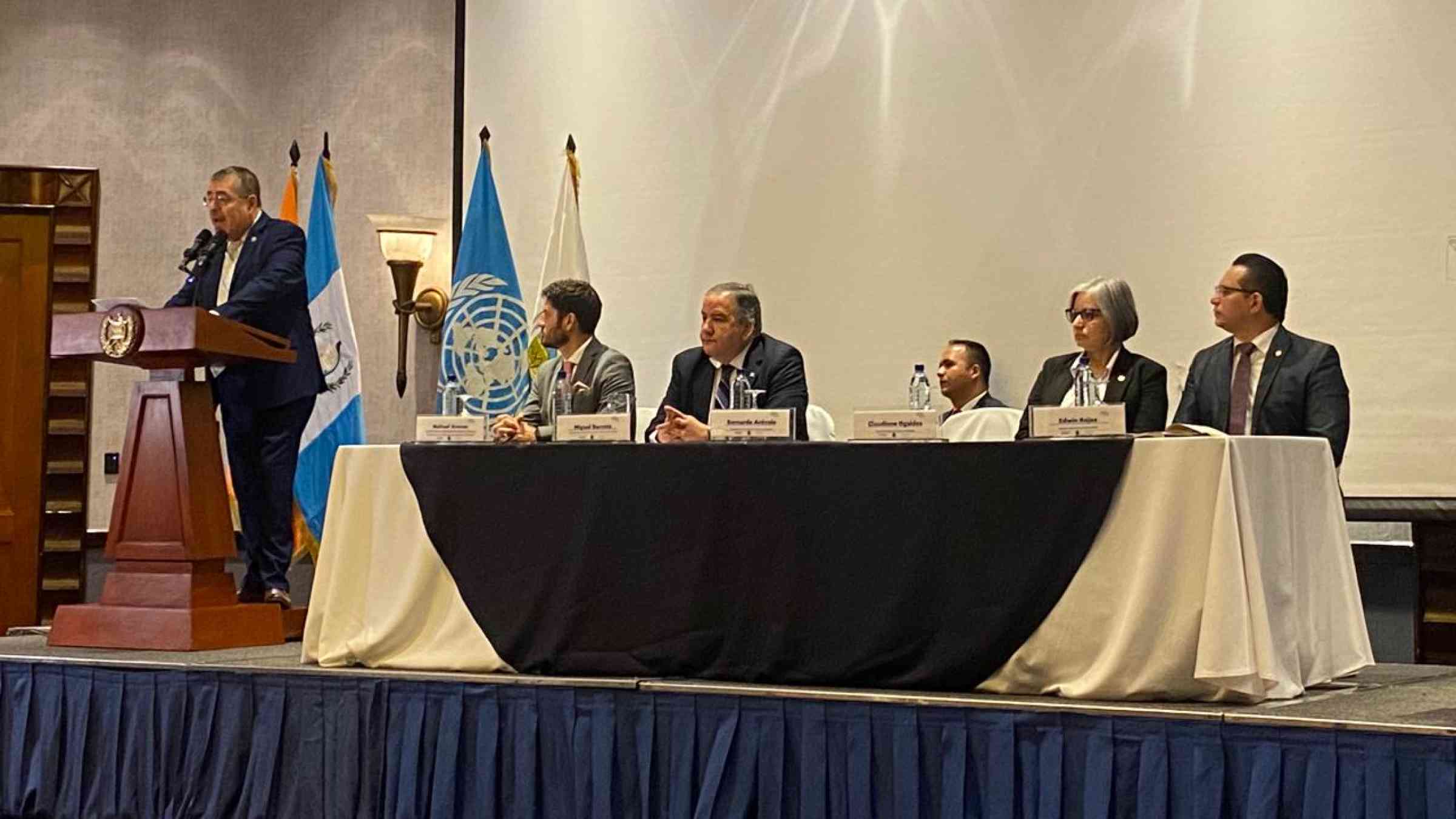Guatemala launches Early Warnings for All Initiative

Guatemala City, 12 March 2024 - Guatemala has committed to enhancing the protection of its people by announcing the national launch of the Early Warnings for All (EW4All) initiative in Guatemala, which aims to provide multi-hazard early warning coverage worldwide by 2027.
This national launch in Guatemala will consolidate multi-agency efforts to address existing gaps in risk knowledge, hazard monitoring and forecasting, warning dissemination and communication, and rapid response.
This implementation is intended to be supported by a robust monitoring and evaluation system that will track towards strengthening the early warning system components.
The initiative seeks to integrate the efforts of UN agencies, NGOs, civil society, the private sector, and academic and research entities to ensure effective implementation and participation of all people, especially vulnerable groups.
To unify efforts, the collaboration of the Government of Guatemala and the Office of the Resident Coordinator of the United Nations System in Guatemala has been fundamental to launching this initiative.
César Bernardo Arévalo, President of the Republic of Guatemala, highlighted the strategic importance of EW4All to ensure a safer future for Guatemalan society. "We are taking steps to build resilience, moving away from the concept of sole emergency management. We believe in and are committed to a comprehensive vision that guides Guatemalans, both by birth and at heart, toward a genuine reduction of the risks that cause disasters because we are confident that a safer Guatemala is attainable," said President Arévalo.
Nahuel Arenas García, Chief of UNDRR’s Regional Office for the Americas and the Caribbean, emphasized the correlation between early warning systems and effective and sustainable development. "Countries cannot develop if they are in continuous post-disaster recovery," said Arenas Garcia. "In a world of interconnected crises and increasing natural hazards, the EW4All initiative is a response towards taking concrete and effective measures to save lives and protect development efforts," he added.
In Guatemala, the entities designated to lead this process are the Executive Secretariat of the National Coordinator for Disaster Reduction (SE-CONRED), the National Institute of Seismology, Volcanology, Meteorology and Hydrology (INSIVUMEH), and the Ministry of Environment and Natural Resources (MARN).
"This initiative will allow local communities to actively participate in risk management processes, thus enhancing the overall effectiveness of disaster response strategies. Through improved communication, training, and resource allocation, we are committed to building an informed, prepared, and resilient society in the face of adversity," said José Miguel Barreto, Resident Coordinator of the United Nations in Guatemala. "This launch is confirmation of the intrinsic understanding that peace derives from disaster risk management, as demonstrated by the Agenda 2030 and the Sendai Framework," he added.
CONRED's Executive Secretary, Claudinne Ogaldes, highlighted the role of institutional capacity building for efficient implementation. "It is important to strengthen the capacities of all the institutions of the CONRED System, with the objective of increasing prevention mechanisms for timely response, generating information on potential risks, which must be translated into timely decision-making by communities and local authorities”, she said.
People-centered, end-to-end, multi-hazard early warning systems are one of the best disaster risk reduction and climate adaptation measures for saving lives and reducing economic losses. According to the Global Status of Multi-Hazard Early Warning Systems 2023 report, countries with limited to moderate early warning coverage have disaster mortality rates that are nearly six times higher than those of countries with substantial to comprehensive coverage. Yet despite these benefits, nearly half of the countries of the world lack effective multi-hazard early warning systems.
The EW4All initiative was launched in 2022 to address this gap, and at COP27, the UN Secretary-General introduced an Executive Action Plan for its implementation by 2027, where he asked the United Nations Office for Disaster Risk Reduction (UNDRR) and the World Meteorological Organization (WMO) to co-led the initiative, with support from the International Federation of Red Cross and Red Crescent Societies (IFRC) and the International Telecommunication Union (ITU).